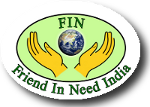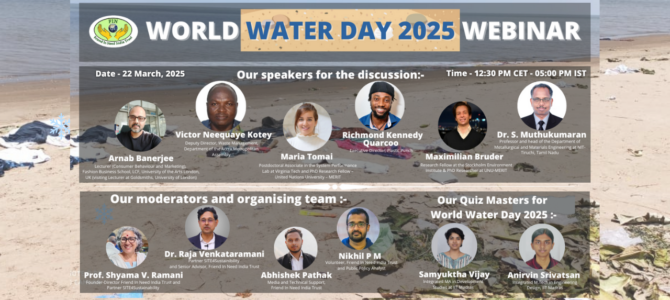The World Water Day Webiz entitled “From Dirty to Blue: How Can Beaches Be Transformed Sustainably?” conducted on March 22, 2025, explored the challenges and solutions for achieving cleaner and more sustainable beaches. It delved into the criteria for earning the prestigious Blue Flag certification, highlighting the systemic changes required to improve beach environments. Organised by Friend In Need India Trust (FIN) and SITE4Sustainability, in collaboration with Plastic Punch and MSP, the event featured discussions on critical topics, including plastic pollution, municipal waste management, behavioural change, and technological innovations. There were about 100 people who participated out of the 152 who registered. 35 on average in zoom and the rest on youtube.

First, Samyuktha Vijay and Anirvin Srivatsan, students of IIT, Chennai, conducted a quiz so that the audience got to know about what a blue certification was, how it could be obtained and the pros and cons of blue certification.
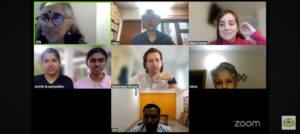
Maria Tomai from Virginia Tech then examined how obtaining and maintaining a Blue Flag certification is akin to a complex system transformation. She laid the foundation by outlining the various criteria that must be seamlessly integrated into such a project, emphasizing the multi-faceted approach required for long-term success.
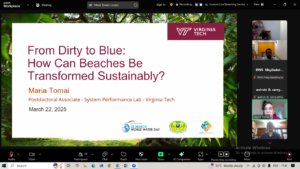
Next, Maximilian Bruder from the Stockholm Environment Institute presented the case study of Kameswaram Beach, recently announced as a candidate for Blue Flag certification. He detailed the key pillars of infrastructural investment, drawing from the lead document that outlines necessary developments, insights from other Blue Flag certified beaches in India, and findings from a pulse survey conducted by FIN.
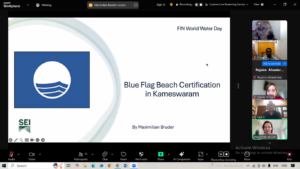
Richmond Kennedy Quarcoo, Executive Director of Plastic Punch, provided an in-depth look into plastic waste issues and the organization’s efforts to generate data for evidence-based policymaking. Their remarkable work in Ghana, particularly their ability to mobilize communities in a meaningful and impactful way, served as a source of inspiration for all.
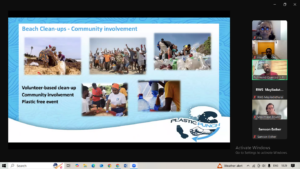
Victor Neequaye Kotey from the Accra Metropolitan Assembly provided valuable insights into the role of municipalities and the challenges faced by governing bodies in managing waste and maintaining clean beaches. His open and humble approach to tackling this enormous issue resonated with the audience, and his innovative ideas on collaborating with the informal sector stood out as particularly impactful.
Dr. Arnab Banerjee from the University of the Arts London broke down the fundamental principles of behavioral economics related to ‘nudges’ in a way that was both accessible and engaging for the audience. He explored the dynamics of behavioral change through nudging and proposed creative, well-thought-out interventions specifically tailored for the transformation of Kameswaram Beach.
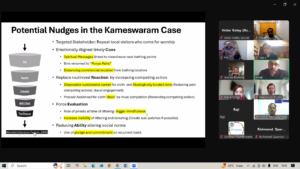
Prof. Dr. S. Muthukumaran from NIT-Tiruchirappalli, a distinguished academic inventor, presented two innovative frugal technological solutions: Fureboat and Muther’s Magic Bag. These solutions, proven effective in multiple regions, can play a crucial role in achieving the goal of garbage-free water bodies by efficiently tackling waste accumulation and promoting clean-up efforts.
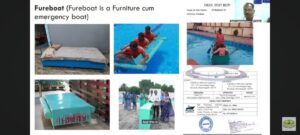
The expert moderation by Prof. Shyama Ramani and Dr. Raja Venkataramani fostered deeper insights, while Abhishek Pathak ensured seamless organization and Nikhil P M outreach effectively expanded the program’s impact.
By integrating academic and practitioner insights, behavioural interventions, and innovative technologies, the program provided a comprehensive roadmap for sustainable beach transformation.

We would like to thank all the speakers and the audience for making this program a grand success!

